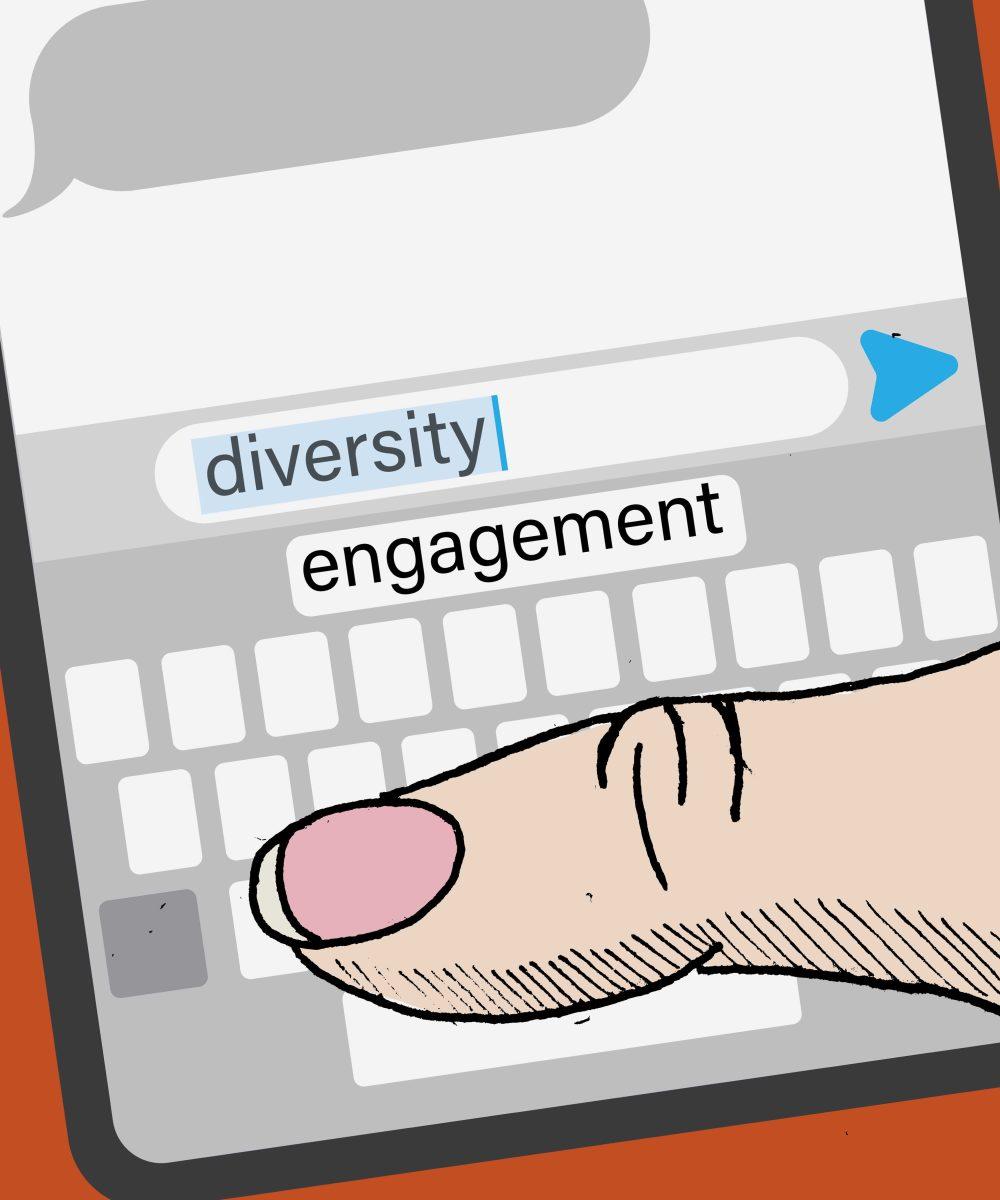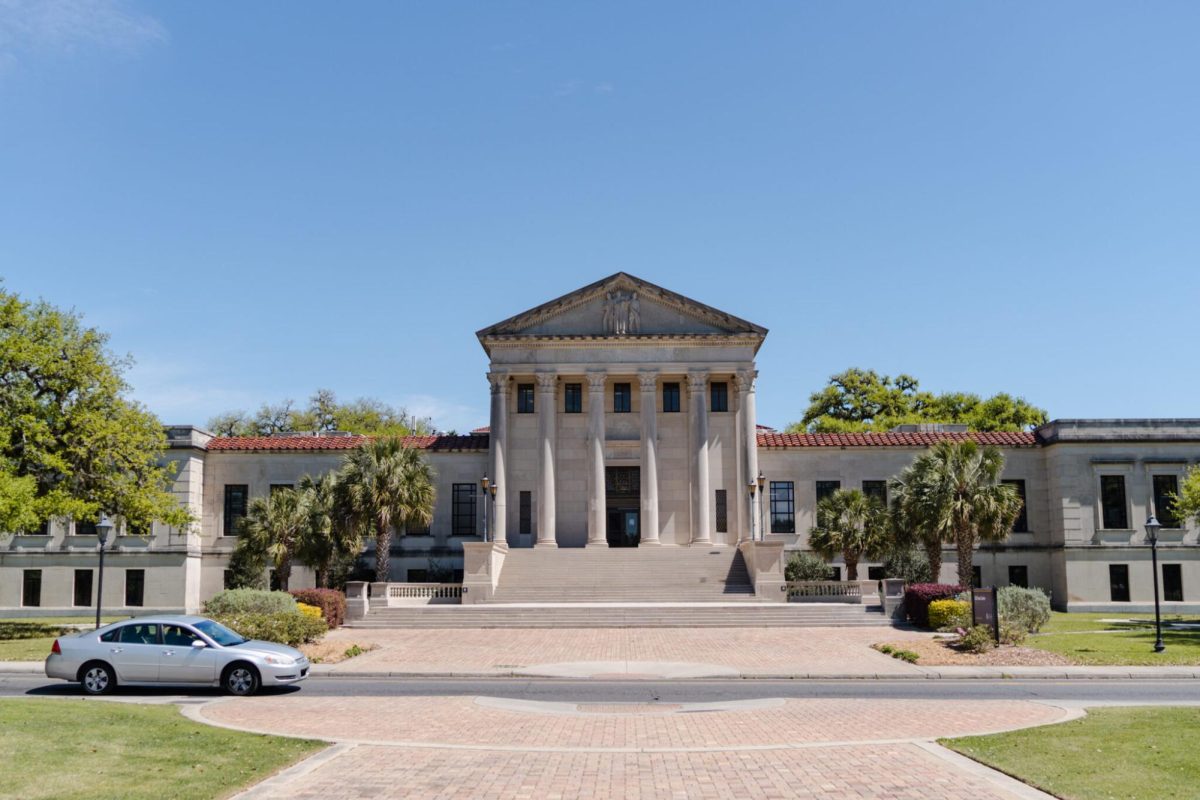Across its colleges and campuses, LSU has scrubbed the word “diversity” from much of its online vocabulary in recent weeks.
At least six websites removed the word and related content, coinciding with LSU swapping “inclusion” for “engagement” in the name of what is now the Division of Engagement, Civil Rights and Title IX. President William F. Tate IV announced this “central and unifying theme” of “engagement” to campus in an email in early January.
That division name change was announced; other alterations happened quietly. The university denied, through a spokesman, speculation that anyone was asked to change language on their websites. A college dean also said she wasn’t asked to remove diversity content. But archives of the edited websites, reviewed by the Reveille using the Internet Archive, show the changes across sites ocurred within the same few-week period.
Among other rewritings and deletions, the university removed its diversity statement, which made a call to “recognize and reflect on the inglorious aspects of our history.”
“We believe diversity, equity, and inclusion enrich the educational experience of our students, faculty, and staff, and are necessary to prepare all people to thrive personally and professionally in a global society,” the statement read.
When asked about the diversity statement, Todd Woodward, LSU’s vice president of marketing and communications, pointed to a new statement on the engagement division’s website that says LSU “strive[s] to provide equal opportunities for students, faculty, and staff.” It does not use the words diversity, equity and inclusion, known as DEI.
Other schools within the university changed the language of their websites and committees to add “engagement” and remove “diversity.” The Manship School of Mass Communication removed a series on racism from its website and YouTube; the dean said it would return, but wasn’t clear when. And the College of the Coast and Environment replaced its diversity action plan with a “Roadmap to Inclusion and Engagement” that was identical apart from its name.
It marks a move away from the DEI language that has become a target of conservative politicians in and outside Louisiana.
A Wednesday ruling from the Florida Board of Education, for instance, banned public universities and colleges from using state or federal funds for DEI-related programs and policies. Similar legislation in Texas has forced public colleges to shutter their DEI offices.
The conservative battle against DEI has sparked in Baton Rouge, as well. During Louisiana’s 2023 legislative session, a lawmaker proposed a bill that would require schools to collect data on their DEI programs. And in April, a state Republican Party committee called for the legislature to end DEI offices at the state’s public and private universities and colleges.
The change on LSU’s websites sparked pushback from some on campus, many of whom were caught off guard by the pivot away from the university’s previous commitments to DEI.
Students expressed concern that LSU was moving away from the values that had drawn them to the school in the first place, disappointment at the change and concern for how the new language would affect future students.
“That’s gonna make people think, incoming freshman, oh, are there going to be diverse people here?” said Reagan Lewis, an animal sciences freshman. “Am I going to be welcome? Are people going to like me here? Because some people don’t feel like they fit in if they’re surrounded by just—okay, let’s say I’m a Black girl, and I’m the only Black girl in here, surrounded by white people—will I feel welcome? Will I feel okay in my environment? And that’s probably going to make some people not go here because I have experienced that.”
Mass communication senior Emily Mumola felt LSU was “removing the bare minimum.”
“It seems like they’re missing the point by taking away the basic language of diversity and instead replacing [it] with a vague statement,” she said.
Rebranding
The altering of LSU web pages was wide in its scope but varied in its extent.
Woodward said the administration did not instruct colleges to remove any language online, but many of the pages were changed within the same few-week period, according to archives of the websites reviewed by the Reveille.
For instance, between Dec. 15 and early January, the College of the Coast and Environment replaced a “Diversity, Equity, & Inclusion” page with one titled “Inclusion and Engagement.” It also removed the words diversity and equity from the text of the website, replacing that language with inclusion and engagement.
The college rebranded its DEI committee as an “inclusion and engagement committee” and replaced its diversity action plan, dated February 2022, with a “Roadmap to Inclusion and Engagement,” dated January 2024. The two documents are the same, except for two differences: their names and dates.
“Although enhancing diversity, equity, and inclusion (DEI) has been a strategic priority of the LSU College of the Coast & Environment (CC&E) for many years, this plan charts the course with specific actions to make CC&E a more welcoming, inclusive, equitable, and diverse college,” both of the documents read.
Dean Clint Wilson did not respond to a request for comment from the Reveille about the changes.
Meanwhile, the LSU Law Center replaced its “Commitment to Diversity” with a “Commitment to Belonging, Student Success, and Wellness.” The new statement, while reworded, conveys a message similar to the original. This change happened sometime after Oct. 19, according to the most recent page saved in the Internet Archive.
Asked about the changes, Dean Alena Allen acknowledged the political debate around the language.
“There has been quite a bit of discussion about how politicized and unclear the words diversity, equity and inclusion are. Likewise, depending on your perspective, we have seen a lot of misinterpretation and misinformation,” Allen said. “The goal was to update our website and to provide a clearer and more substantive articulation of our values and goals instead of relying on language that is overused and less clear.”
The newly minted Division of Engagement, Civil Rights and Title IX has had the “mission, vision, and diversity statement” section of its webpage completely removed from its original placing in the “about us” dropdown menu. Gone, too, from the page is any reference to the Diversity Leadership Committee, which was described as holding “the University accountable for promoting inclusion, integrity, respect, service, and social justice,” according to an archive of the page.
The Manship School has retained a “commitment to diversity” statement on its website. Dean Kimberly Bissell said that statement would remain and that the school’s courses would not be affected. Still, the college received attention for removing a 20-episode series called “Racism: Dismantling the System” from its website and YouTube channel.
Bissell has attributed the series’ removal to a website redesign and the fact that she didn’t feel the videos were presented well online. Though she said she consulted the university administration about the website redesign, she emphasized that “any decision about content was my decision.”
The changes didn’t stay in Baton Rouge. LSU Alexandria switched the name of its Office of Diversity, Equity and Inclusion to the Office of Civil Rights Compliance and Access. These changes happened sometime between Dec. 15 and Jan. 5, according to saved pages under the Internet Archive.
Still, LSU-A is unique from most changes that have ocured. While it did reword and remove multiple sentences containing DEI language, it still kept certain mentions of DEI on its office’s page, while LSU’s main campus did not.
Woodward, the LSU spokesman, said the schools weren’t directed to change the DEI language on their sites.
“We have more than 14,000 pages we host on LSU.edu. I am not aware of any reason this language would be changing comprehensively. I have not seen anything in writing asking anyone to do this,” Woodward said. “Completely separate from the [engagement] plan, it would seem logical to me, with what we know has happened in the state of Florida and Texas, many have been wondering what will happen with our state, and there very possibly could have been some discussions about what language is on websites. I know for sure no one has asked anyone to change language.”
Pivot to ‘engagement’
As LSU turns away from DEI language, it turns toward a new focus word: engagement.
In his email to campus, Tate offered two explanations of the word, calling engagement a “two way process that enables change on both sides” and a “serious commitment” to Louisiana and its people. Such engagement will be encouraged through new awards for LSU students, faculty and staff, ranging from $500 to $3,000.
The newly-renamed division has a frequently-asked questions page on its website. One of them reads: “Is LSU still committed to diversity and inclusion?”
It doesn’t answer that with a yes or no, nor does it use either of those words. Instead, it affirms the university’s aim to “provide equal opportunities for all students, faculty, and staff, ensuring that everyone has the chance to thrive and succeed.”
Dean Bissell told the Reveille she doesn’t feel that the university moving away from DEI language impacts its ability to discuss those topics.
“I think sometimes what happens is that we get hung up on language, and we get hung up on words, and I don’t think that it means that the conversations aren’t happening,” Bissell said.
Others disagreed. In Bissell’s own college, mass communication professor Robert Mann has repeatedly lambasted the university on X, where he expresses frequent criticisms of the university administration to his more than 28,000 followers.
“Just a total abdication of moral leadership by President Bill Tate and other leaders at LSU,” he posted in response to news of diversity language being scrubbed. “Disgraceful action that should, at the very least, trigger a Faculty Senate vote of no confidence in Tate.”
Mann sits on the Faculty Senate. He announced that he would step down from the university in the spring after Jeff Landry, a conservative Republican who had once called for the school to punish him, won the race for governor in October.
Political science professor Belinda Davis said she thought the change was a direct result of the new governor and a supermajority of Republicans in both chambers of the state legislature.
“The Republican Party in Louisiana and Gov. Landry have expressed hostility towards diversity, equity and inclusion programming, and I think that LSU is responding to the political reality that it now exists in,” Davis said.
Davis’ research revolves around American politics at the state level and, among other areas of focus: representation. She told the Reveille that she has been involved with state agencies that made similar language changes—with deleterious effects.
“It emboldened the folks who are concerned about DEI efforts and makes it harder for you to foster an inclusive learning environment for folks that are diverse.”
Davis said she thought the LSU administration had made the changes in an effort to protect the university.
“Unfortunately,” she said, “I don’t think that it’s going to do that.”
Jacob Mathews contributed to this report.







